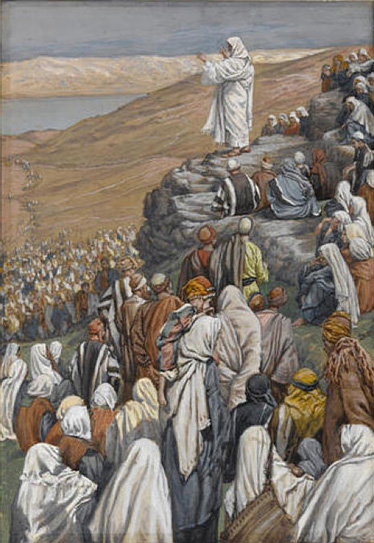The views expressed in our content reflect individual perspectives and do not represent the authoritative views of the Baha'i Faith.
That perennial and universal human advice — Know Thyself — probably first originated from the Greek philosophers. Today, we can add another admonition: Know Thy Belief Systems.
As we investigate the different religions we will inevitably discover differences between them. Importantly, these differences may be solely the result of cultural expression — and thus in name and form only. Baha’is believe that most religious differences exist at the surface – that down deep all of the great Faiths concur:
Therefore the divine religions [the Prophets of God] established have one foundation; their teachings, proofs, and evidences are one; in name and form they differ but in reality they agree and are the same. Abdu’l-Baha, The Promulgation of Universal Peace, p. 151.
Even scriptural differences may be more in name and form only than may at first be apparent. Upon close examination, it becomes clear that scripture is of two types: one type deals with faith and morals and ethics and defines our relationship with God. The other type deals with the particular circumstances of the recipients of the scripture – the needs of the age and the people who live in it. From these two types of scripture come two types of laws – social and spiritual. When compared, true religions give very similar counsel regarding the essentials of a spiritual life, even though they may vary widely when comparing their temporal, social components. Baha’u’llah tells us that much of the difference between religions
“is to be attributed to the varying requirements of the ages in which they were promulgated.” – Epistle to the Son of the Wolf, p. 13.

The Sermon on the Mount by James Tissot
The difficulty for us in comparing religions will be in determining how much of the needs of the age and the capacity of the peoples have shaped the religion under investigation. Christ’s principle that He had many things to tell us which we could not bear to hear, applies equally well to the Founders of other Faiths.
The first recipients of a religion determine, in large measure, what will be revealed in that religion, because human beings have limited understanding. Prophets must use our tools of language and concept to communicate with us, and as these tools differ from culture to culture, the end result of religion may also differ.
Further, religious instruction is rarely perfectly recorded. Passed from person to person, all spiritual learning includes the inevitability of interpretation and the possibility of distortion. When people fail to consider differing interpretations carefully, the result is often terrible conflict:
Inasmuch as human interpretations and blind imitations differ widely, religious strife and disagreement have arisen among mankind, the light of true religion has been extinguished and the unity of the world of humanity destroyed. – Abdu’l-Baha, The Promulgation of Universal Peace, p. 141.
Thus people in each age have a double chance to shape religion: they provide the language and concepts Prophets must use and they also control, to some extent, what is passed on after a Prophet has ascended. Therefore, it will always be difficult to know how much of what we have received is what was taught.
This natural loss of inspiration means religion must be renewed in each age, because at a certain point in time we again need spiritual guidance. We still hear the old teachings — but either they don’t seem to fit the times or we are no longer able to make the times fit the teachings. When that happens, we feel an urgency in us to reconcile our faith and the times.
When the new religion comes, however, it is never totally new. Each new religion must return us to the ancient root of religion — to that common and essential part all religions share. But in addition, it must also move us upward into the new light of our times. This whole process of reaffirmation of old truths and new growth is what the Baha’is call progressive revelation. The new religion may bring different laws, customs, rituals, and observances, but it will always be more like than unlike the old religion in essential spiritual truth.
You May Also Like
Comments

















http://povodebaha.blogspot.pt/2014/03/comparar-as-religioes-procurar-verdade.html